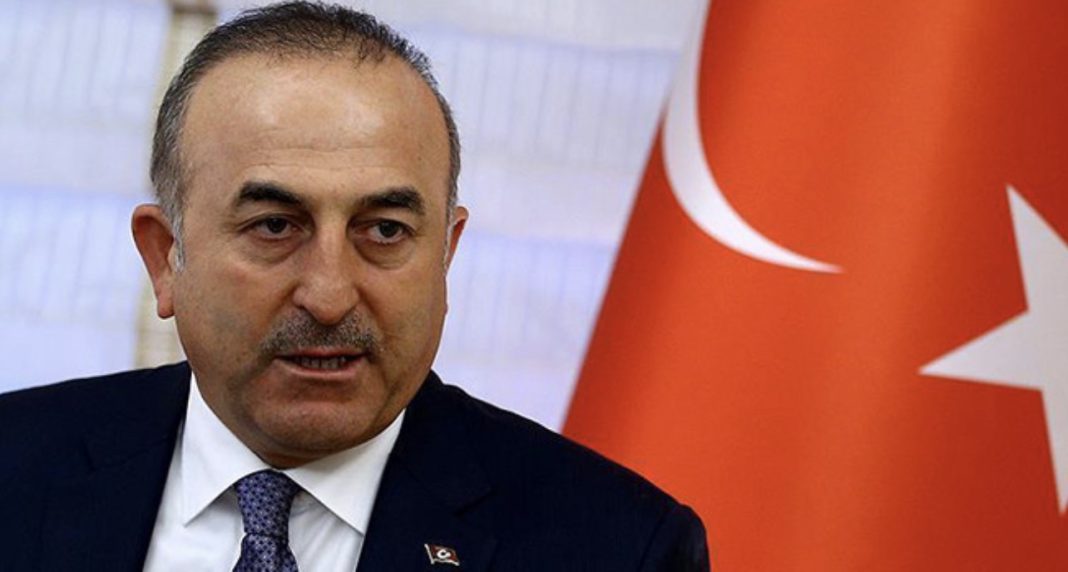By Janet Ekstract
UNITED NATIONS (TURKISH JOURNAL) – Turkish Foreign Minister Mevlut Cavusoglu addressed the Sixth Istanbul Mediation Conference several days ago, praising efforts taking place in Geneva for a mediated political solution to Syria ‘s nine-year civil war. Cavusoglu said the purpose of the conference is to “consider how we approach mediation, one of our most important tools to reduce and end conflict.”
Cavusoglu praised the first meeting of the Constitutional Committee on Syria as a “landmark” and as he said, “a foundation for progress, and in itself a clear success of mediation.” The foreign minister added that he is hopeful this committee who began talks this week in Geneva – will be an initial step towards a “political solution” to end what he termed “this tragic chapter in the lives of the Syrian people.”
The minister said he hopes the Constitutional Committee creates an opportunity for all Syrians to return to their homes “in safety and dignity, to end their status as refugees.”
Turkey’s Foreign minister said that he “welcomed efforts” to put an end to fighting in northeast Syria through dialogue but he stressed that there is still a major concern about the situation in Idlib.
He added that mediation is an instrumental tool in resolving all types of international conflicts and explained that the United Nations has close strategic and operational partnerships on mediation with regional and sub-regional organizations.
Cavusoglu said: “Our work with the African Union is, in my opinion, exemplary and has enabled us to support joint approaches at the highest levels in countries across the continent, while our peacekeeping and political missions work to being parties together at the national and local levels.”
One crucial point that Cavusoglu pointed out was a comment he made in his statement to the conference: “Mediation cannot wait for a military stalemate or a request for help. There is a need for mediation at all stages of the peace continuum, from prevention to peacekeeping, peacebuilding and development, including between parties to protracted conflicts.”
He also added that previous mediation efforts in African countries have been very successful and that Turkey is supporting current mediation efforts between the National Government of Papua New Guinea and the Autonomous Bougainvillea Government. Cavusoglu emphasised that mediation is a “preventive tool” and added that his offices and his envoys have one goal in mind: “to help parties peacefully resolve differences.”
Another major point, the foreign minister addressed is the role and participation of women in formal peace processes. He mentioned that this must be “a special area for creative strategies.” Cavusoglu added that previous efforts need to be built upon including the Syrian Women’s Advisory Board and the Yemeni Women’s Technical Advisory Group “to support regional women mediators” networks like the African Union’s Fem-Wise network.”
The Turkish Foreign Minister also explained that his High-Level Advisory Board on Mediation is assisting with advice in various political processes and his Standby Team on Meditation have previously supported talks from Afghanistan to South Sudan – from Papua New Guinea to Syria.
Meditation, Cavusoglu said is “part of our efforts to address both the root causes and consequences of conflict, particularly at the local level. Post-conflict peacebuilding, including reconciliation, transitional justice and reconstruction, is vital to prevent violence recurring.”
Future goals include as Cavusoglu pointed out, a need to coordinate the Turkish foreign ministry’s mediation work with an increasing number of regional organizations, civil society groups and other parties taking part in mediation.
Turkey’s foreign minister emphasized that in order to deal with 21st century “complex conflicts” that three tracks of mediation must work together in a collaborative manner: “track one comprises political and military leadership; supplemented by unofficial and informal contacts at the track two levels to test ideas ; and track three to widen process, including civil society and grassroots initiatives.
To that end, Cavusoglu explained that 600 million young people across the globe are currently being affected by conflict and that youth has a vital role to contribute in mediation and peacebuilding . He added that the first International Symposium for Youth Participation in Peace Processes that met earlier this year, was a significant initial step toward this effort.
He put emphasis on the fact that there has been less conflict resolution mediation in areas that need it the most. Cavusoglu said: “There is limited attention to low-intensity or “forgotten” conflicts. We and our partners must find the resources to engage across the board.”
In making his final point, Cavusoglu turned to the importance of digital technology as a tool for mediation as well as a problem when social media content is manipulated. He referenced The United Nations Digital Toolkit for Mediators that is designed to support the safe use of new technologies in mediation efforts with definitive advice and case studies.
The Turkish foreign minister concluded by emphasizing that communication will always be key in any successful mediation and that it is everyone’s responsibility to guarantee that this communication remains accurate, reliable and as secure as possible.
Cavusoglu added: “Who knows what could have been achieved by the people of the world towards ending hunger and disease, providing education and opportunities for all, if war and recovery had not consumed so many lives and so much energy and resources? We must do all in our power to end the meaningless cycle of destruction and reconstruction.”




